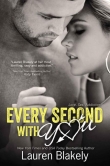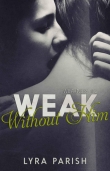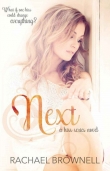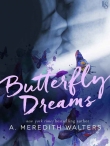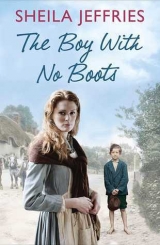
Текст книги "The Boy with No Boots"
Автор книги: Sheila Jeffries
Жанры:
Роман
,сообщить о нарушении
Текущая страница: 3 (всего у книги 16 страниц)
Chapter Five
A RED RIBBON
Freddie had always given horses a wide berth. He didn’t dislike them, he was just wary. Annie often told him the story of how her brother had been killed in a horse-and-cart accident. The horse had bolted through the market, scattering pedestrians and overturning traders’ stalls. Annie had been there and she relished the telling of the story, each time adding a detail and exaggerating more. The horse went faster each time, the screams were louder, pots and pans and boots and shoes from the overturned stalls were strewn far and wide, the fruit barrow toppled and hordes of apples rolled wildly down the street. When the cart finally crashed, her brother was thrown even higher into the air and was even more dead when he landed. Freddie always listened, wide-eyed, fascinated not so much by the story but by the effect it had on Annie’s normally dour appearance. Telling a story brought her to life, her eyes sparkled and her cheeks flushed redder and redder as she galloped through the story. There were pauses too, crisp silences where Freddie held his breath, his eyes fixed on Annie’s face.
The storytelling became a ritual. Round the fire on a rainswept evening, or under the apple tree on a balmy afternoon. Despite his difficulty with communication, Levi had stories too, and when he started in his gravelly voice, Freddie was transfixed. Most of Levi’s tales were funny, but Levi never smiled or laughed. He would tell the story, po-faced, and his silences were longer than Annie’s. Being part of one of Levi’s silences was like pole-vaulting over the river, that moment of uncertainty in the air when you didn’t know which way you were going to fall. Then Annie and Freddie would scream with laughter while Levi remained po-faced, only the occasional spark of pleasure straying into his eyes. Finally he would add, ‘I don’t know what you’re laughing at. ’Twere true as I’m sitting here.’
Some of Levi’s stories involved horses, usually casting them in a negative role, and Freddie’s wariness of horses evolved from the storytelling rather than from actual experience.
So when he found himself facing a massive Shire horse in a narrow lane, Freddie’s heart almost stopped.
Annie had sent him to the village of Hilbegut, a two-mile walk, with a cracked white basin in his hand and some pennies tied in the corner of his hanky. The faggot man was coming to the village. He had a barrow piled high with pork faggots which disappeared rapidly as soon as he started selling.
‘Get three, if you can. And don’t drop them,’ Annie had said. Now that he had boots, Freddie was sent on longer and longer errands to neighbouring villages. He was eleven now, and still wearing Granny Barcussy’s boots which were now too tight. There were holes in both the leather soles, letting in the water and the stones, and his feet were again sore and blistered. It was November now, nearly time for Christmas. He was hoping for a present, just one, and what he wanted most was a penknife, his own knife so that he could whittle sticks and carve owls and monkey faces out of the wood he’d collected.
‘If I run, I’ll drop the basin,’ thought Freddie, so he stood still, facing up to the Shire horse. It appeared to be loose in the lane with only a leather halter on its head. Freddie looked at the horse’s knees, which were the size of two dinner plates. Its coat was a lustrous black, with four creamy white skirts of long hair around its hooves and a white stripe down its face. Its mane was so thick that he could hardly see the eyes, but he knew the horse was looking at him. He considered flinging the basin in the ditch and making a run for it.
The horse tossed its head and gave a reverberating sneeze, and a few drops of spray reached Freddie’s face. He had three options: jump over the wide ditch which was full of water, reverse into the prickly hawthorn hedge on the other side, or sneak past the horse with his basin, past its tree-trunk legs and massive rump. What if it kicked him? One kick and he’d be dead.
Freddie was scraping up his courage to try the sneaking past option, when he heard a strong bright voice from behind the hedge.
‘You stay still, Daisy. I’m just shutting the gate.’
Daisy? What a name for a giant with dinner-plate knees. Freddie backed into a prickly hawthorn tree and peered through its berry-laden twigs, his mouth open in astonishment as a little girl emerged from a gateway and marched up to the horse with a confident swagger, her long dark hair swinging. She wore a red dress with a white ruffled pinafore over it, tightly laced boots and a rather tatty red ribbon in her hair. But what Freddie noticed was the glow in her dark eyes and the way she skipped happily up to the big Shire horse and picked up the trailing reins. The horse bent its huge head and blew softly out of velvet nostrils. Obviously it loved and trusted the tiny girl who was so absorbed with it that she didn’t notice Freddie standing against the hedge.
What she did next took his breath away. First she kissed the horse’s soft muzzle. Talking all the time in a voice like a chirruping robin, the little girl persuaded the horse to turn around, its metal shoes scrunching on the gravel. She led it back and coaxed it round until it was standing alongside the gate. Then she climbed energetically up the bars, stood on the top bar, and leaped expertly onto the horse’s bare back, opening her legs wide to stretch across the broad withers. She had sunburnt little knees as if she was used to hitching up her long dress and racing about in the sun. She looked relaxed and at home on the horse’s back.
High in the air, she rode past Freddie, her eyes alight, her plume of hair blowing in the breeze. She didn’t notice him at all. Freddie thought she was beautiful. And he saw how carefully the big horse plodded away down the lane with its precious cargo. He watched the little girl’s straight back and the horse’s shining rump disappearing with the slow clop-clop of its hooves, and he wished he had spoken to her. He could have asked her name.
Quickly he put the basin down and climbed a nearby ash tree to watch where she went. He thought she might be a Romany gipsy. She had the same bold manner and vibrant eyes of the gipsy children he had seen. But no, she was heading down a farm track between post and rail fencing, the Shire horse still moving placidly. She lived on a farm. A proper farm. Round golden haystacks, barns with red roofs and a farmhouse with several groups of cream-coloured chimneys. The horse and the little girl disappeared through the entrance gate which had two tall stone pillars with carvings on the top. The sun was shining on them and Freddie could just make out what they were. Animals with curly manes and fierce faces. Were they dogs? Or lions? Freddie had never seen a lion for real, only a picture of one, and he’d read about them in Rudyard Kipling. He knew that lions represented power. What kind of girl would live in a house with two stone lions guarding it? A rich girl, he thought.
Beyond the farm, half hidden behind a blaze of copper beeches, he could see another intriguing building with turrets and minarets. Hilbegut Court, he thought, awed. He had heard of Hilbegut Court and the squire who lived there like the king of the village. A flock of jackdaws evidently lived there too, he noticed as they flew up, chack-chacking, and a flight of white doves circled glittering against the sky twisting and turning in formation.
The little girl probably lived at Hilbegut Farm, he concluded.
The sound of voices wafted over the fields, he could hear her robin-like voice, and the laughter of the children playing. He longed to go nearer and peep, and, more than anything he wanted a closer look at the stone lions. It excited him to think of them sitting up there staring into the sunlight, glaring into the night, shrugging off the rain and the wind, appearing on winter mornings with icicles hanging from their jaws and hoar frost capping their manes.
There were so many things Freddie wanted to do. He wanted to go fishing, he wanted to carve wood with a penknife he didn’t have, he wanted to go to the cemetery and spend time studying the stone carvings there, the sweet faces of angels and the ornate letterings, the exciting gargoyles round the edge of the church roof who snarled down at him and made him shiver. He wanted to go pole-vaulting over the river like the boys he’d watched one day as he’d crossed the bridge on one of his endless errands. They were boys from his school, big boys, and they laughed at him and called him ‘snowball’ because of his white blond hair.
Now he wanted to go to Hilbegut Farm and feel the burning gaze of the stone lions. He wanted to sit in the sweet meadow hay and smell the summer, hide and keep watch to see that girl with the red ribbon. He tucked her away in his mind, putting her top of all the treasures he’d stored in there, to think about on his long cold walks. He’d paint a picture of her, riding the majestic Shire horse with her hair blowing in the breeze, if only he could have a piece of paper. At school they were allowed one piece each per week, for the art lesson, and Harry Price usually arranged a few bottles and an apple on his table.
‘Draw that,’ he’d bark, and stalk around the classroom criticising their efforts. They were never allowed to do a picture of their own. So strong was Freddie’s need to do the picture in his head that he actually considered stealing a piece of paper. Today it was November the 11th. Christmas wasn’t far away. He might hope for a drawing book instead of a penknife.
Still sitting in the ash tree, he heard shouting and three boys came running round the corner. They were yelling and jumping, pushing each other and throwing their caps in the air. Freddie climbed down quickly to grab the white basin which he’d left in the grass. He expected the boys to stop and ask his name and what he was doing there, but they clattered past in their rough boots, and one of them waved and winked at Freddie.
‘Come on!’ he cried, and ran on.
Puzzled by the exuberance, Freddie followed at a distance, the basin under his arm. It was an awkward, slippery, heavy thing to be carrying in his small fingers.
Approaching the village where the faggot man traded, he noticed the church and people milling around it. Something was happening. Instead of standing in a miserable queue, men and women were dancing and shouting, waving strips of cloth and throwing their hats in the air. Freddie stood against a wall, watching, half afraid of the unfamiliar riotous scene. He was used to misery. Now the whole village seemed to be going mad.
Suddenly a forgotten sound jangled across the countryside. The bells. The church bells. Ringing and ringing. Freddie could feel the stone walls trembling under his hands and down the backs of his legs. The clangour of the bells lifted his mind into mysterious halls of wonder, a place where everything was spun from gold. He’d never been to a party, and now a party had come to him, filling the sky with music.
The whole landscape seemed to shiver with the unaccustomed revelry. Flocks of finches and yellow hammers bobbed along the hedges with extra bounce, and the trees threw down the last of their leaves in swirls of gold. The cows started to gallop, bucking and twisting, with their ridiculous tails in the air, their hooves squelching. In the next-door field the sheep clumped together and stampeded. And all the dogs of Hilbegut village and beyond were barking like the symphony of a thousand dogs.
Some children scuttled past him, rolling hoops of rusty metal. Freddie grabbed at a boy’s coat.
‘What’s happening?’ he asked.
The boy gave Freddie a wild toothy grin.
‘Don’t you know?’ he said. ‘The war is over.’ He clenched his fists and shouted at the sky, ‘The war is OVER.’
Freddie absorbed this information in silence. He didn’t know how to dance and celebrate and throw his hat in the air like the boy was doing.
‘Do you know where the faggot man is?’ he asked.
‘The faggot man? I dunno. Ask me mum,’ said the boy, and his eyes lit up. ‘We ain’t gonna need no faggot man now. No more queuing, see? They’ll be shops, proper shops with things in ’em. Want a go with my hoop?’
Freddie shook his head, looking at the metal hoop the boy held out to him. He’d never played with a hoop. In fact he’d never played at all, except with Granny Barcussy. He’d never even had a friend.
‘Come on, Jack!’ yelled another boy further along the road.
‘Gotta go.’ With another toothy smile, the boy ran off to join his friends.
The war was over.
And suddenly it hit Freddie. The loneliness. The overwhelming loneliness. The hard work, the hunger, the long cold walks to school, the worrying about his mother. What difference did it make to him that the war was over?
Freddie slid to the ground, wrapped his arms around his knees and hid his face from the world. An old and merciless sensation was erupting from the middle of his chest into his throat like boiling water. He hadn’t cried since he was very little, and Annie had reprimanded him for it. ‘Stop that noise,’ she’d barked, and he’d learned how to swallow the sobs deep into his being. But they were still in there. All that crying he hadn’t done, and now he couldn’t stop. It was massive. Stone after stone, shaking his thin body like a bombardment. The autumn sun was warm on his hair, he could hear the bells and the cheering, but all he wanted to do was cry. He cried and cried until his body felt boneless like a fungus clinging there against the wall.
‘What’s the matter with me? I’m useless,’ he said aloud, and then Levi’s words came marching into his mind. ‘Don’t you EVER be like me’ and he’d said, ‘I won’t be.’ But was he?
The following Wednesday at school, Freddie realised the effect the end of the war was having on everyone. Even Harry Price. A stiff smile had cracked his leather face, and he had a cardboard box on his desk with sweets in it.
‘The war is over!’ Harry Price had bellowed, and he’d seized a handful of sweets and flung them at the children.
‘Well go on. Eat them,’ he’d laughed as the children sat in stunned silence, not daring to touch the sweets that twinkled tantalisingly. ‘If you don’t want them I’ll take them back.’ Harry Price took a step forward, his eyes mischievous, and the children moved, scrabbling for the sweets. Freddie had three of them, a boiled raspberry, a striped humbug, and a toffee. He didn’t dare eat them but stuffed them quickly into his pocket to look at later.
‘Now,’ said Harry Price when the excitement had died down, ‘it’s time for the art lesson. And just this once, only once, mind, you can do any picture you like.’
Freddie’s heart soared. He took his rectangle of clean white paper and smoothed it on his desk in disbelief.
‘And you can use these crayons,’ Harry Price was saying, ‘I’ve been saving these for a long time.’
A battered tobacco tin appeared on Freddie’s desk with stubs of wax crayons inside.
‘Work carefully. And don’t break them. And don’t get the paper sticky. And don’t . . .’
Freddie heard no more. For the next hour he was completely engrossed in his picture. He did the Shire horse first, starting with its head, and even though Daisy had only been wearing a halter, he drew an elaborate bridle with studs and curly patterns on the leather. He did her eyes black, leaving a tiny crescent of white to make them look shiny. He did a set of horse brasses dangling down her chest, each one different and intricate. He drew her four enormous legs with the long skirts of hair, and her orangey-gold hooves peeping out. He drew the metal shoes with the little triangle at the front, and the seven nails hammered in and bent over each hoof.
Harry Price strolled around, smoking his pipe and making observations on the children’s drawings.
‘I’m surprised,’ he kept saying, ‘surprised what you can do.’ When he came to Freddie he stood for a long time in silence, and Freddie tensed, but he went on drawing confidently, working his way round the Shire horse, making its body rounded and sleek, drawing each crinkly hair of its mane and tail.
‘A horse is the hardest thing to draw,’ said Harry Price, and he picked up Freddie’s picture and held it up. ‘Look what Freddie’s done.’
The whole class gasped, and suddenly Freddie was the centre of attention; children who had teased him were smiling at him admiringly.
‘I haven’t finished it yet, Sir,’ he said anxiously, and Harry Price put the picture down and moved on.
‘Only quarter of an hour left,’ he said, and the children groaned.
Freddie got to work again. Could he draw the little girl with the red ribbon in such a short time? His pencil moved swiftly, surely, as if an invisible hand was guiding him. Freddie started to tingle with excitement. His grandfather was there again. He was holding his hand over Freddie’s small one, steering the pencil, drawing the little girl’s vivid face, her long hair flowing in the wind, the curls of it, the red ribbon fluttering. Then her straight back, the ruffles on her pinafore, her leg gripping the horse’s back. Freddie rubbed out part of the back so that she would look real, as if she was really sitting there. He paused to see what he had drawn, and was unexpectedly overwhelmed by it. Had he really drawn it? It was good. He had captured something precious. And he wanted to keep it.
Harry Price loomed. He always collected the children’s artwork and they never saw it again. Freddie wanted his picture to keep forever, to show Granny Barcussy and his parents. He wanted it on his bedroom wall to look at before he went to sleep. He thought quickly. Waited until Harry Price walked away. Then he picked up his picture, crept past the hot stove, right to the door, opened it stealthily with one hand, and made a run for it.
It was raining hard. He tucked the picture under his jacket and ran with his heart pounding at his ribs, across the wet playground, splashing through muddy puddles.
‘COME BACK HERE, BOY,’ he heard Harry Price roar after him.
Freddie struggled with the iron latch of the gate, throwing it open with a squeak of hinges. He bounded down the steps and ran hard, feeling the picture crumpling against his body, the rain plastering his hair, the puddles filling his boots.
And he knew he could never go back.
Nor could he go home.
Panting, he paused under the shelter of the lych gate by the cemetery. It had two benches inside and he sat on one, ready for flight if anyone came chasing after him. He was steaming hot and his breath rasped painfully. But he had the picture. He took it out and looked at it, thrilled; it made him smile. Where could he hide it? And how could he keep it dry? Already it was puckered and limp. Reluctantly he folded it into four, then once more, and stuffed it in his jacket pocket.
Harry Price would complain to his dad again, and Levi would go into a fury. He’d make Freddie take the picture back and apologise. The injustice of it stung. The only option was to hide it and pretend he hadn’t got it, and take it out years later when everyone had forgotten about his crime. There was only one person he could trust. Granny Barcussy.
Freddie set off on the two-mile walk in the pouring rain. Mud sucked at his boots, his socks hung round his ankles like sodden sponges, and the water seeped down the back of his neck and trickled inside his jacket. He kept his hand over the pocket where his picture was, trying to keep it dry as he walked and ran alternately, across the squelching sheep fields and into the wood. Imagining Granny Barcussy’s face when she saw the picture kept him going. She’d give him soup and dry his clothes and let him tell her what had happened. And she’d hide the picture for him in a secret drawer she had in her bureau.
Under the lime tree where his grandfather first appeared in his haze of primrose light, Freddie lingered just long enough to remember that summer day and the warmth of Granny Barcussy’s greeting. Now he was sopping wet, starving and frightened by what he had done. She would be better able to deal with it than his mother.
He trudged on across the carpet of sodden leaves, out of the wood and down towards the river. The water was brown and swirling, washing sticks and foam against the bridge as he ran over. Now he could see the round terracotta chimney of Granny Barcussy’s place, and it struck him as odd that no smoke was rising from it.
A strange feeling hovered around the farmhouse, a thick silence that seemed to reach out towards him, pushing him away. Freddie walked slower and slower, his hand over the picture in his pocket. He wondered if Granny Barcussy knew the war was over. He’d tell her. And he’d give her one of the precious sweets in his pocket, the humbug he thought she’d like. Then he’d chop wood and light a fire for her.
With those bright thoughts he ran the last stretch to the farmhouse door, undid the latch and pushed it open. It smelled musty and the fireplace was full of ashes, cold and unlit. He touched the empty rocking chair and it creaked, rocking a little on the flagstone floor.
‘Where are you, Granny?’
Leaving wet splodges of footprints Freddie went to the kitchen, surprised to see the door swinging open. He peered inside, and saw the worn soles of Granny Barcussy’s boots facing him on the floor. She lay there, on her side, her white hair, unrolled from its usual bun, spread out across the stone floor. A stain of blood, now old and dark, oozed from under her neck. Her cheeks and lips were blue-white, her eyes closed under eyelids that had the cold sheen of marble.
The nine chickens were clustered around her, cuddled together along the length of her frail body and in the crook of her arm, roosting there quietly, like guardians.
Shocked, Freddie touched the black knitted shawl that covered her shoulder. She felt strange, like a log broken from a tree. He touched her blue hand. It was stiff and icy cold.
Freddie sat down on the floor and stared at her. He stared until he realised he could no longer see the bright aura that had always shone out of her. The light had gone out. And then he knew.
Granny Barcussy was dead.
Freddie felt oddly calm. First he took a cream wax candle from the jar, set it in the metal candlestick and lit it with a match. The glow flickered warmly in the rain-darkened room, moving the peachy light up the damp walls, making shadows of the kettle and the pots and pans, lighting the wise eyes of Freddie’s china owl which stood on the dresser.
Then he fetched the red tartan rug from the back of the sofa and arranged it gently over her, right over her face and hair. The chickens murmured but didn’t move. Then Freddie lay down on part of the rug beside her, cuddled up to her in his wet clothes, and closed his eyes.




